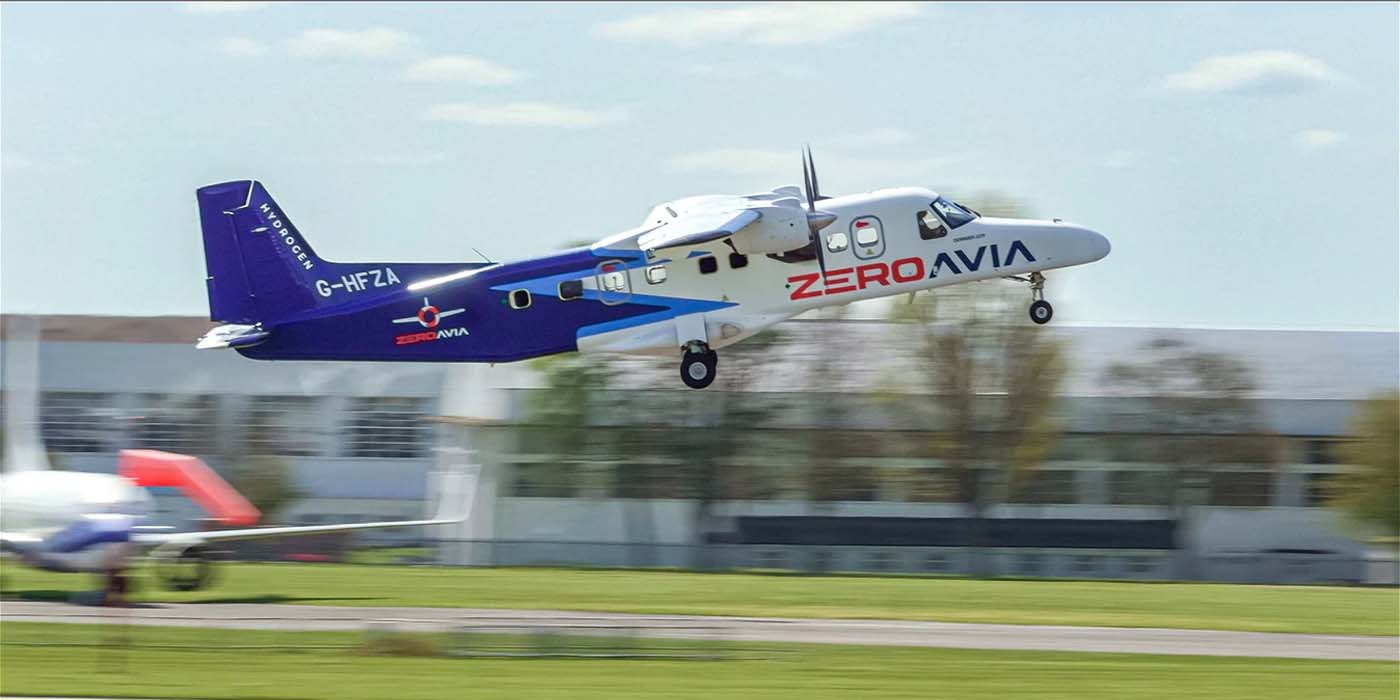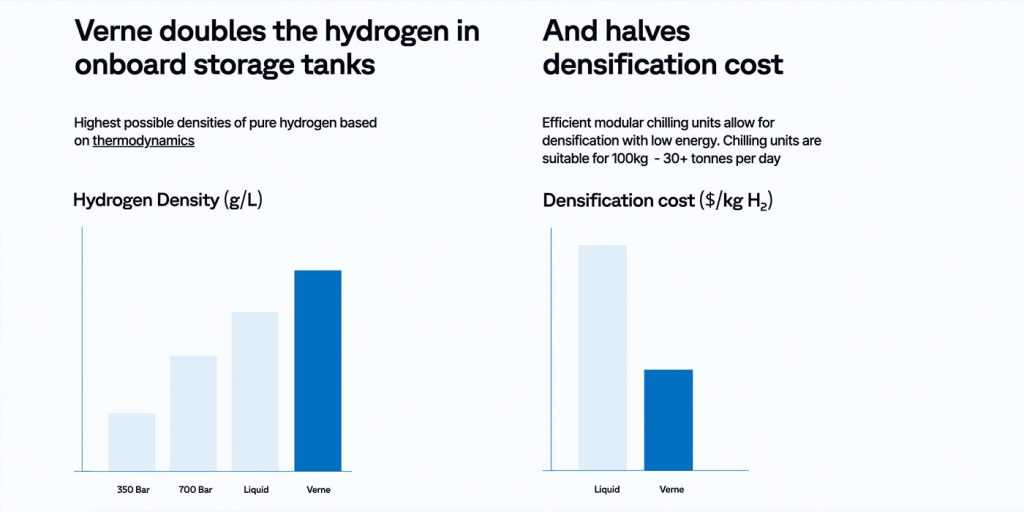[ad_1]

Hydrogen-electric plane aviation technology developer ZeroAvia is exploring a form of energy-dense fuel to develop aircraft that can refuel faster and potentially fly farther. The company has signed a memorandum of understanding with hydrogen tech startup Verne to co-develop the plane integrations.
Following a series of milestones in the past decade, ZeroAvia sits closer than ever to delivering commercial operations of hydrogen-electric planes en route to its goal of achieving a 40- to 80-seat aircraft with up to 700 miles of range by 2027.
We’ve already seen the company achieve experimental flight certificates from the CAA in the UK and the FAA in the US, and it’s been one year since it completed its first flight with a 19-passenger hydrogen-electric plane.
September 2023 brought several new partnerships and a fresh round of funding led by Airbus, Barclays, and Saudi Arabia’s “living laboratory,” NEOM. In late November, ZeroAvia announced a deal to provide up to 70 zero-emission planes to sustainable startup airline EcoJet, which looks to become the world’s first all-electric airline.
As more and more airlines take notice of the viable solutions hydrogen and electric planes can provide, ZeroAvia is now optimizing its technology to provide aircraft that can refuel faster, cheaper, and fly farther. To do so, it has enlisted the help of hydrogen fuel specialist Verne.

ZeroAvia taps Verne to optimize its hydrogen planes
Per news from ZeroAvia today, it has signed a MOU with Verne to jointly explore the potential of cryo-compressed hydrogen (CcH2) as a viable source of zero-emissions fuel for planes. Verne currently operates as a hydrogen storage and refueling startup focused on heavy-duty mobility.
Verne specializes in cryo-compressed hydrogen, which stores gaseous hydrogen at cold temperatures, thus increasing the fuel’s energy density. Through its research, Verne states CcH2 can deliver 40% greater usable hydrogen density compared to liquid hydrogen and 200% percent more usable hydrogen density than (350 bar) gaseous hydrogen.
In addition to providing a more extended range to ZeroAvia’s future electric planes, Verne says cryo-compressed hydrogen can significantly reduce densification costs and refueling times compared to liquid hydrogen while increasing dormancy time and potentially eliminating any need for pressure management, e.g., venting. Per Verne co-founder and CEO Ted McKlveen:
Aviation is a massive potential market for Verne, as it becomes clear that hydrogen is critical to tackling the industry’s climate impact. Airports can be centers of hydrogen activity, with co-located hydrogen demand for aircraft, airport ground operations, and on-road commercial transportation. Cryo-compressed hydrogen has a key role in optimizing this ecosystem.
Verne has already developed systems that can deliver 4 MWh of hydrogen storage, backed by several grants, including Amazon’s Climate Pledge Fund. Following today’s partnership announcement, ZeroAvia will work alongside Verne to assess the potential benefits of scaled CcH2 storage and refueling infrastructure at airports. That process will begin with an initial model implemented at airports in California.
As ZeroAvia and other electric plane developers look to take to the skies in more extensive and efficient vessels, cryo-compressed hydrogen could serve as the novel technology for those planes. This is an exciting development as aviation accounts for 10% of all US transportation greenhouse gas (GHG) emissions and 3% of the US total emissions, per the EPA.
FTC: We use income earning auto affiliate links. More.
[ad_2]
Source link
